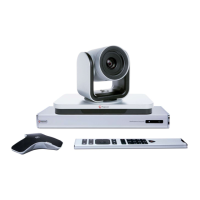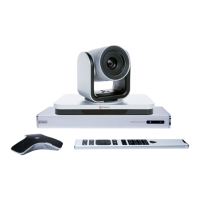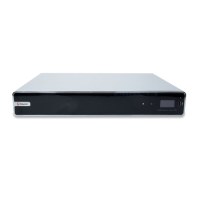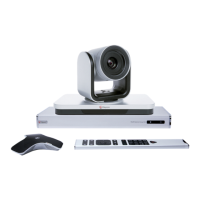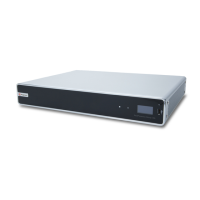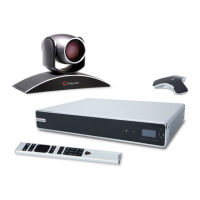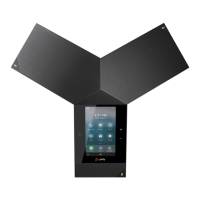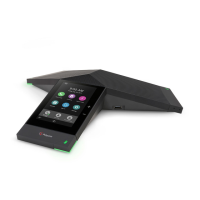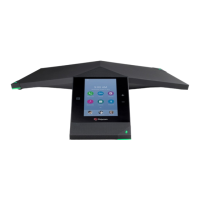Setting Description
Transport Protocol Sets the protocol your system uses for SIP signaling
(your SIP network determines which protocol is
required).
• Auto: Enables automatic negotiation of protocols in
the following order: TLS, TCP, and UDP. Polycom
recommends this setting for most environments.
• TCP: Provides reliable transport via TCP.
• UDP: Provides best-effort transport via UDP.
• TLS: Provides secure SIP signaling. TLS is
available only when you register your system with a
SIP server that supports it. If you set this option,
your system ignores TCP/UDP port 5060. Select
TLS if you want to encrypt SVC calls.
Force Connection Reuse Disabled by default (recommended).
When disabled, the system uses an ephemeral source
port for outgoing SIP messages. When enabled, the
system uses the active SIP listening port as the source
port (5060 or 5061, depending on the negotiated SIP
transport protocol in use).
You can use this setting to establish correct operation
with remote SIP peer devices, which require that the
source port match the contact port in SIP messages.
BFCP Transport Preference Controls content sharing negotiation behavior. When
you use the Binary Floor Control Protocol (BFCP), a
relationship is established between the floor control
server and its clients. What you set here determines
how network traffic flows between the server and
clients.
Note: TCP is typically slightly slower but more
reliable than UDP. Some deployments don’t
support it, such as with session border
controllers (SBCs).
• Prefer UDP: (Default) Starts resource sharing using
UDP but falls back to TCP if needed.
• Prefer TCP: Starts resource sharing using TCP but
falls back to UDP if needed.
• UDP Only: Shares resources only using UDP. If
UDP is unavailable, your system can’t share
content in a separate video stream.
• TCP Only: Shares resources only through TCP. If
TCP is unavailable, your system can’t share content
in a separate video stream.
Configuring Network Settings
Polycom, Inc. 68
